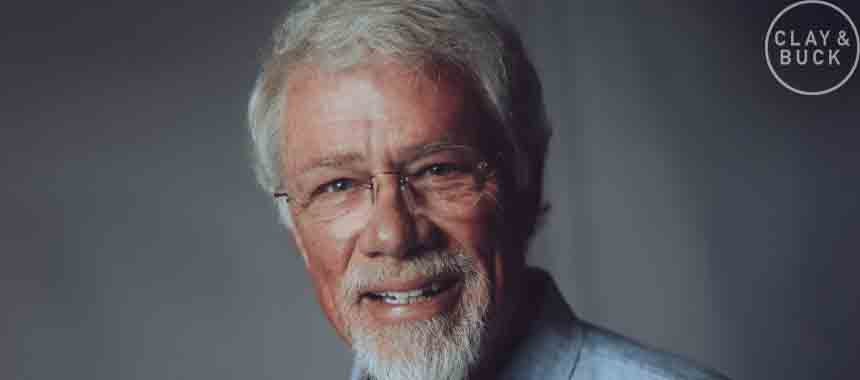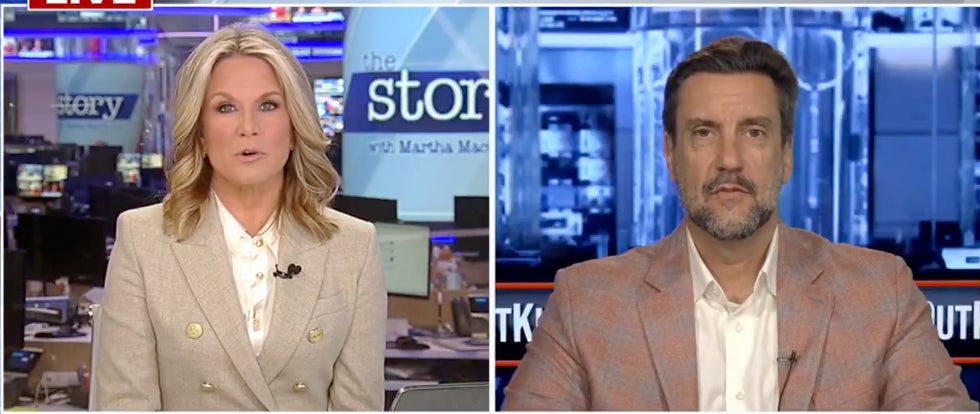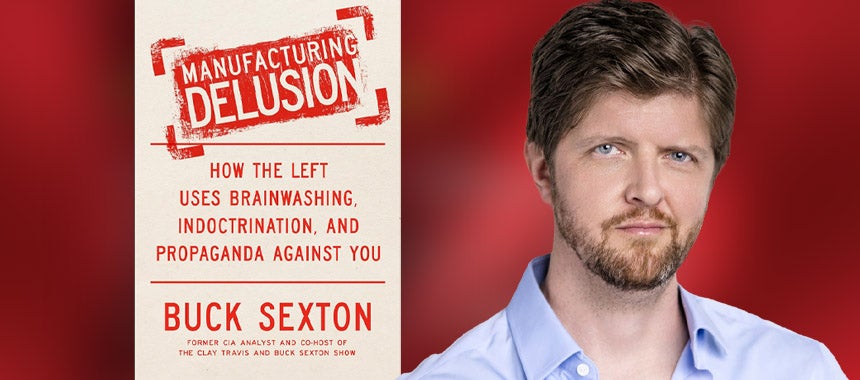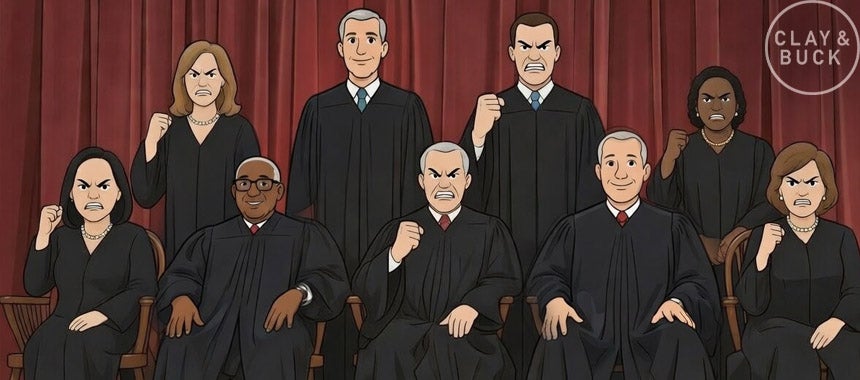Why Dems Never Demand Colleges and Universities Charge Less
24 Aug 2022
KUDLOW: It’s just so patently wrong. I mean, yes, it’s gonna boost spending in the economy; so, it’s undoubtedly gonna add some inflation, right? There was no Inflation Reduction Act. All this stuff is inflation expansion. So, that’s one point. But here’s a bigger point, okay? Seventy percent of the taxpayers are gonna be asked to finance the other 30%. And that 70% is middle, blue-collar working folks, right? The 30% are a lot of graduate students and people in arts and sciences. I mean, it just doesn’t make any sense whatsoever.
 BUCK: Welcome back to Clay Travis & Buck Sexton Show. That was Larry Kudlow laying it down, and the Biden administration has already released the more official points here for the student loan. They call it “forgiveness.” I mean, you can say cancellation, whatever, the giveaway, the bribe. I do think you can just refer to this as a bribe. There’s a lot of this I think everyone sees as not only political, but also there’s a classism at work in this.
BUCK: Welcome back to Clay Travis & Buck Sexton Show. That was Larry Kudlow laying it down, and the Biden administration has already released the more official points here for the student loan. They call it “forgiveness.” I mean, you can say cancellation, whatever, the giveaway, the bribe. I do think you can just refer to this as a bribe. There’s a lot of this I think everyone sees as not only political, but also there’s a classism at work in this.
The Democrats still very much view themselves as — they pretend to be — the party of the working class when they want votes, but it really is the party of coastal elites. It’s the party of people who still cling to this, honestly, outdated and really fallacious notion that having a degree from a college means you’re smart. It does not actually mean you are smart. It can. It can also not. Depends. And lots of folks who never go to college are incredibly bright, do very, very well and are really happy with their life choices.
This is what we see more and more. Never mind in some cases we’re talking about advanced degrees in fields where you’re really learning nothing. I mean, it’s essentially social justice and political activist training under the guise of sociology or something like that. But so, Clay, I also think people bring up an interesting idea. Why aren’t schools on the hook for this? Here’s the problem. They remove the risk factors.
They backstop all this with the taxpayers. They mandate all this… It’s kind of like what they did with the housing market. They mandate all of these things as a function of government policy. It would be very different in a bank had to sit there and say, look. We could give you 200 grand. But we actually don’t think that the college you’re going to or this program you’re going to is a very likely payback mechanism for this loan.
So, we’re going to say “no.” The government decided, well, everyone has a right effectively to go to college, back stopped by taxpayer loans. This is crazy. You know, these schools would make very different decisions if the expectation was that the system and the marketplace would function.
 CLAY: Well, you just look at the cost of higher education, Buck. And depending — I think there needs to be more of an analysis of what you’re majoring in. If you go off to school and you decide you want to be an engineer, okay, that training almost immediately can translate into a valuable degree. But if you’re going to be a social worker — and there’s nothing against social workers — but you’re only gonna make $40,000 a year for pretty much the rest of your career.
CLAY: Well, you just look at the cost of higher education, Buck. And depending — I think there needs to be more of an analysis of what you’re majoring in. If you go off to school and you decide you want to be an engineer, okay, that training almost immediately can translate into a valuable degree. But if you’re going to be a social worker — and there’s nothing against social workers — but you’re only gonna make $40,000 a year for pretty much the rest of your career.
Why would you be taking out a hundred-thousand-dollar loan to take and be able to get a $40,000-a-year job or 50 or whatever it is, something where you’re not — it’s gonna take years of work for you to even equal the loans that you have taken out in terms of income? And the other thing that needs to be more discussed, Harvard has, I believe, an endowment, Buck, of, what is it, $40 billion now?
BUCK: Yep.
CLAY: I think Harvard has the largest endowment in the country. Harvard, Yale, Princeton, certainly large. University of Texas system. Why are we effectively giving $300 billion in subsidizes to these higher education institutions? Because all of these schools, to your point, a lot of people got paid. They already got compensated for the education that they gave. Why should the government come in and compensate them?
If the school itself wanted to forgive some loans and wanted to give back to the students that took them out, good for the school. But these are broken educational institutions that fundamentally don’t make sense at many of these places as they’re continuing to increase… We’re gonna have a hundred-thousand-dollar-a-year school, Buck, in what, the next five or six years —
BUCK: The other problem that the Democrats do not talk about at all, and it is because the university system is a province of leftism.
CLAY: Yes.
BUCK: I mean, the university system is a power center and is a machinery used for the benefit of the Democrat Party. We all know this. Where do we find the craziest libs? In fact, I’ve been arguing for now over 20 years that colleges are effectively the laboratories for the most lunatic leftism.
CLAY: Yes.
BUCK: That you see things on the college campus and then they make their way into the pop culture and then they make their way into the boardroom and all of a sudden, it’s like state policy. You’re like, wait a second. How did this happen? You look at so many issues. It starts on college campuses. So, it really is in many ways an essential component of the left’s power base, which is why they leave these schools alone. If you look at the cost of things in American life over the last 40 years, you know, my dad, like you, went to college on a scholarship, went to college on a ride, full ride, and then he tried… He went to business school. I think it cost, like, $1500 a semester or something. Now, I understand —
CLAY: Important to mention, yes, but some people say, “Well, it’s because of inflation.” No, no, no.
BUCK: No, no, no.
CLAY: It was actually super cheap back then as a percentage of cost, right?
BUCK: Right. What I’m gonna say is even if you were going to look at inflation — you can do this, look at inflation calculator. Okay. Maybe 1500 a semester would be more like, you know, 10 grand today, right? So, you’re looking at, like, 20 trying to understand. And this was going to, you know, a business school, an advanced degree program —
CLAY: A private business school.
BUCK: Right. Business schools now are $70,000 year, folks.
CLAY: Yeah.
BUCK: You look at the cost of college. We’re looking at advanced degrees. You look at state tuition as well. You would think state tuition should be super low. Anybody right now listening to this who has had a child who wanted to do out-of-state tuition at Michigan, UVA, University of Virginia, some of these schools are $60,000 a year.
CLAY: Yeah. And even, like, not like, Michigan and UVA.
BUCK: — schools, yeah.
CLAY: — public schools. If you want to go to the University of Alabama — no shot at the Tide — Nick Saban, highest paid, 11.7 million, there was a lot of people — I was joking yesterday with friends — you never would have thought that people from California and New York would be like, you know where I want to send my kids to finish their degree? Alabama. But that’s how popular Alabama’s gotten. Alabama is like $60,000 a year now, Buck, out of state.
BUCK: Right.
CLAY: I mean, we’re talking about craziness any out of state institution. And private schools, get outta here.
BUCK: You look at what it is now compared to the — effectively, the Boomer generation, what they were paying and what people have been looking at really for the last 20 years, the two areas of American life that have gotten just outrageously more expensive have something in common — a lot of government subsidy and market infractions and market intervention, health care, and — which should be getting cheaper all the time. It has not.
CLAY: Correct.
BUCK: If you look at it, health care has actually gotten a lot more expensive. And also, college education has gotten more — we have seen the democratization of information through the internet. This is true for everybody. I mean, I learned how to cook based on the internet. I’m not great. I’m okay. I’m not saying it’s like culinary school. But you can really teach yourself a lot.
There are entire… There’s Khan Academy. There are entire — you know, Yale and university courses where you’re watching the video, they’re giving you the reading material, you can do — somehow all that has happened and schools get more and more expensive all the time. And you saw a lot, too, with the covid lockdowns where they were saying, oh, you still have to pay full tuition —
CLAY: Oh, yeah.
BUCK: — even though you’re not even getting the experience of —
CLAY: You’re at home watching on a computer.
BUCK: So, they effectively told you, one, this is a credentialing program and that’s really what you’re paying for. Two, the credential, by the way, is much less — you know, much less of a big deal than it used to be at any of these schools, elite schools or not. And then, three, yeah, apparently if you can just watch it on your computer screen, you can learn the same stuff. That’s interesting.
CLAY: The two things that you mentioned are the most socialistic institutions in the United States right now — hospitals, like health care.
BUCK: Yep.
CLAY: You have no idea. There’s no other example of something you buy where you can’t find out what it’s gonna cost before you consume it, right? I mean it’s absolutely insane. Even for things that you know you’re gonna schedule, even nonemergency, Buck — you’ll probably go through this at some point when you have kids — I was trying to go to figure out, like, “Okay, what’s the cost gonna be? What am I gonna be paying out of pocket. Let me compare hospitals,” and everything else.
I couldn’t even… They couldn’t tell me. How can you not tell me when I’m scheduling a surgery, you know, somewhat, right? You know when you’re gonna have a baby, nine months theoretically afterwards. You can’t even figure out what it’s gonna cost. And then all these ridiculous professors on tenure who are locked in for their entire life basically get to stop working once they make tenure. It’s not a real business. It’s a joke.
BUCK: I was, like… I looked at doing a surgery on my ankle, Clay. I’ll never forget this. They sat me down. It’s a very well-known place in New York. I did not have good insurance at the time.
CLAY: Yeah.
BUCK: You know, this is pre… Actually, it was right when Obamacare came around. It was basically like Obamacare-level insurance that I had at the time. But they told me that the surgery would cost between three and $50,000. And I was like, one of these things is really expensive. The other would bankrupt me. So, I think we’re gonna have to… They’re like, “Oh, we’re probably be at the lower end of this.” I was like, what do you mean, between three and $50,000?
CLAY: Imagine if any other business was run like that? Like if you went in and you’re, like, hey, I’m thinking about buying a car, and they were like, well, we’re not sure what the car’s gonna cost, you just take one off the lot and then after you’re done, after you’ve been driving it for a few months we’re gonna send you the bill and it might be 3,000, but it might be 50,000, just go ahead and take the car.
BUCK: And what we’ve done with higher education, just to put a bow on this, everybody, is we’ve told people, “Yeah, that Toyota Corolla, we’re gonna charge you a hundred grand for it. Don’t worry because this is great. The taxpayer is on the hook for it.” That’s not a good system. No shade to the Toyota Corolla, but it’s not worth a hundred thousand dollars. Some degrees not worth what people have paid for them.
Recent Stories

Soren Aldaco: A Detransitioner's Story
One of our most powerful interviews in recent memory. Don't miss it.

Jeff Hays, Director of MAHA Uncensored, a Hard Look at the Business of American Medicine
An inside look at what drives the American medical system.

Clay Praises Alysa Liu's Gold Medal for the USA
Miss Clay on The Story with Martha MacCallum? Watch it here.







